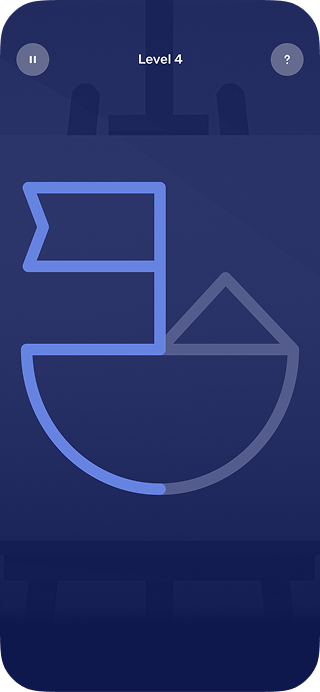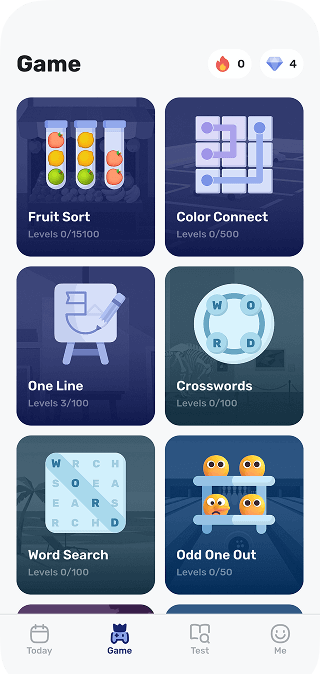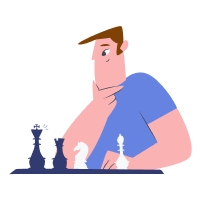Stress Vs. Anxiety: What’s the Difference
Ron Spinabella Chief Editor / Nov 4, 2025
Stress and anxiety, two common emotional states, are often confused by people, but they actually have obvious differences. Below, we will explore in detail the definitions, characteristics and key differences between the two.

What is Stress?
Stress, also known as stress response, is an individual's psychological and physiological response to external stimuli or challenges. It can also be seen as a dynamic process, a natural response of the body to perceived threats or demands, designed to help individuals adapt or cope with these challenges in a timely manner. Such as work burden, financial situation, interpersonal relationships.
What is Anxiety?
Anxiety can be defined as a mood disorder in which an individual feels uneasy, nervous, or fearful, often associated with concerns about potential threats or uncertainty. This mood state is often long-lasting and can affect an individual's thinking, feelings, and behavior. 31.1% of American adults experience an anxiety disorder at some point in their lives, and anxiety is characterized by fear without a specific target and generalized concerns about a variety of situations.
Common anxiety disorders include the following:
- Panic disorder
- Phobias
- Social anxiety disorder
- Obsessive-compulsive disorder
- Separation anxiety disorder
- Illness anxiety disorder
- Post-traumatic stress disorder
Differences Between Stress and Anxiety
External stressors usually cause stress. Excessive responsibilities, high-risk work, major accidents, etc. are prone to trigger stress reactions. Stress can be reduced or eliminated by eliminating stressors. For example, if you feel stressed because you cannot arrange your review time well for an important exam, this stress will continue until the exam. Once you pass the exam, the stressor is eliminated and you can return to normal.
Anxiety is a continuous psychological and physiological response to external threats (whether real or imagined). If you are constantly worried about an emergency at work or a cockroach in your bedroom, you are experiencing anxiety, not stress.
| Span | Cause origin | Same Symptoms | Diff Symptoms | |
|---|---|---|---|---|
| Stress | Short term | In response to a recognized threat | Faster heartbeat, Faster breathing, Diarrhea or constipation | Moodiness, Irritability or Anger, Loneliness, Dizziness, Nausea, Anxious thoughts, General unhappiness, A feeling of being overwhelmed |
| Anxiety | Long term | May not have an identifiable trigger | Restlessness, Tenseness, Sweating, Nervousness, A feeling of unease or dread |
Can Stress Develop into Anxiety
There is a link between stress and anxiety. Chronic or excessive stress can lead to the development of anxious feelings. Physical and psychological reactions to stressful stimuli can activate anxiety responses, making individuals feel nervous, worried, and uneasy. On the other hand, anxiety can also increase sensitivity to stressful stimuli and affect coping abilities, which can increase the perception of stress.
There can be overlap between stress and anxiety, and in some cases, stress can turn into anxiety. If an individual has difficulty distinguishing or managing these emotional states, it is important to seek professional help.
What Causes Stress and Anxiety?
Stress is usually caused by external factors and has a clear triggering cause. These external factors may be short-term, such as a quarrel with a loved one due to a work deadline, being unable to work, discrimination or chronic illness.
Anxiety is long-term and persistent, sometimes without a specific trigger, and it seems to happen for no reason. When you have an anxiety disorder, you may feel general anxiety, have bad expectations about things that have not happened or do not exist, and feel fear and worry. The degree of anxiety is disproportionate to the objective situation. For example, you may worry about contracting AIDS by going to the hospital; you may be afraid that you will develop cancer after getting angry, etc.
When Should You See a Doctor?
Mild stress and mild anxiety can often be managed with physical activity, a nutritious diet, and good sleep. Especially for stress, these coping techniques are a good starting point for improvement and can be very effective.
However, if your stress or anxiety does not respond to these basic coping techniques, or you feel that your stress or anxiety is affecting your daily functioning or mood, consider talking to a mental health professional who can help you understand what you are experiencing and help determine if you have an anxiety disorder.
Treating Stress
Often stress is a temporary problem and can be managed by overcoming the source of the stress. For example, if stress is caused by not having enough time to complete a task, asking for more time is one way to relieve the stress. If it is an interpersonal conflict, it can usually be resolved through proper communication. When the source of the stress is removed, the stress will naturally disappear.
Treating Anxiety
Recognize anxiety disorders and seek treatment from your doctor. The National Institutes of Health says psychotherapy (also called talk therapy) and medication are the two main treatments for anxiety disorders.
Final Thoughts
Although stress and anxiety are both common emotional states, there are clear differences between them. By understanding these differences, we can better identify our own emotional states and take appropriate measures to deal with them. Moderate stress can improve work and study efficiency. If you find yourself in an anxious state for a long time or the stress cannot be relieved, please seek professional help in time to achieve early detection and early intervention!
Disclaimer
Any assessments and their associated content on this website, regardless of date, are not intended to replace direct medical advice from your physician or other professional. If you experience severe or persistent symptoms, please consult a licensed mental health professional or healthcare provider.












